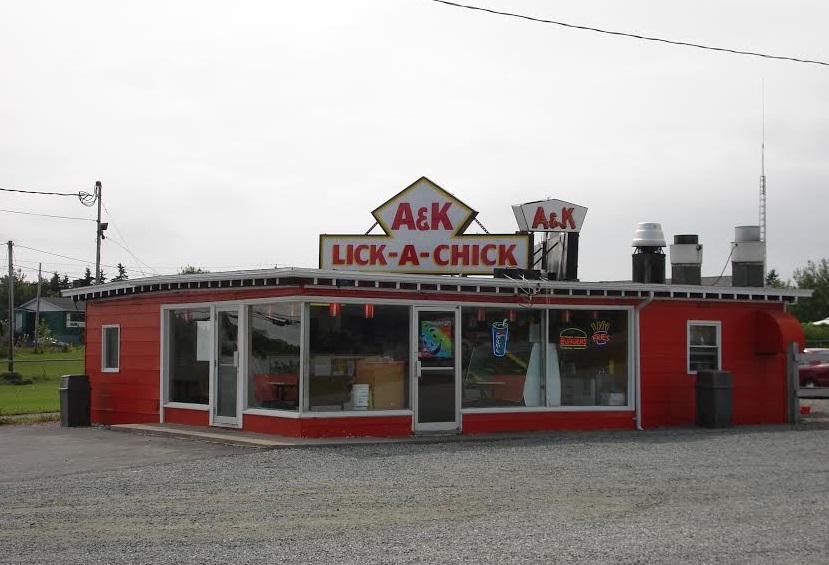We take a lot for granted when we’re kids. Maybe most things. Growing up in Cape Breton in the 1970s and 1980s, enforced post-structuralist studies and a career of editorial skepticism still years away, I barely gave terminology a thought. Things had names. You might not always understand them (like boonabrayed), but you didn’t question them. They just were.

Take Lick-a-Chick, for example. I know — some of you are snickering already. But for 20 straight-faced years, I knew this phrase (which — admit it — you read as an imperative clause) only as a noun: the fried chicken joint that’s the biggest thing in Little Bras d’Or. It was only when my boyfriend from away asked, with an overabundance of smirks and winks, for one of the restaurant’s T-shirts that understanding dawned.
Cape Bretoners do love a tricky turn of phrase. Here are five more names of things that I never questioned as a girl but that now seem … queer (which, in Cape Breton English, just means strange). Alert: If you’re hungry, go eat something first, because they’re all edibles.
- Fat Archie: I never stopped to wonder, as I washed down these biscuit-like molasses cookies with a glass of milk or a cup of tea (which Cape Bretoners drink from the minute they’re out of diapers), where the name came from. The cookies are often fat, as in thick, but “Archie”? Though it’s the name of every third Island male of my father’s generation (those not called Huey or Donald), there’s no established reason for it to be the moniker of a cookie.
- Market and shack: Google these words plus lobster and you’ll get a bunch of eateries. In Cape Breton, however, these terms refer to lobster sizes. Markets are the big bruisers (up to one and a half or two pounds) — what you’d likely find on your restaurant plate. Shacks are smaller, as little as three-quarters of a pound. My family ate shacks. Sweeter, my father insisted. Also cheaper. For a family of Scottish descent, I suspect the price was the more persuasive attribute.
- Blueberry grunt: Involves no grunts, no sound effects at all, though your stomach might groan after a hearty helping. This dessert is basically a fry pan (cast iron, in my experience) full of stewed blueberries, topped with sweet dumplings.
- Pork pie: Not convinced that Capers are a sneaky bunch? Well, the pork pie contains no pork, and it’s not really a pie. This tiny shortbread tart filled with dates and topped with maple icing is arguably the most delicious baked good from the Island (and it may have created its fair share of Fat Archies — of the non-cookie variety).
- Iron Brew: On Sundays, we were allowed a treat from the gas station. My favourite combo was roast chicken potato chips and a cold Iron Brew. Like roast chicken, a chip flavour common in the U.K., Iron Brew came to Cape Breton across the Atlantic. But unlike the original Irn Bru, a Scottish soft drink that’s garish orange and — apologies, fans — disgusting, Cape Breton’s Iron Brew was a dark, spicy cross between cola and root beer. According to Wikipedia, after the drink’s local manufacturer folded in the 1990s, Pepsi took over production for a while, renaming the beverage “Cape Breton’s Irn Bru” and adding a disclaimer that it was not a source of iron. (Darn!) Nowadays the only Irn Bru you’ll find in Cape Breton is the unstomachable Scottish variety. My advice: Enjoy the spelling, then buy a Dr Pepper.
If you spend much of your life chasing after the right words, tricky names probably fascinate you too. What are some odd names of things you grew up with?
A warm thank you to EAC member, current Cape Bretoner and Fat Archie fan Patricia MacDonald, who reviewed this article for accuracy.
Previous Post: Notes From Away: Cape Breton English
The Editors’ Weekly is the official blog of the Editors’ Association of Canada. Contact us.
Discover more from The Editors' Weekly
Subscribe to get the latest posts sent to your email.
